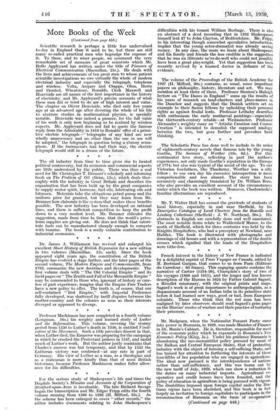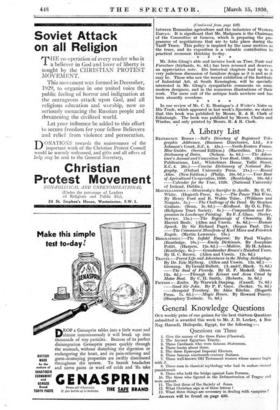Mr. Madge,aru, when the Nationalist Pe,asant. Party came into power
in Rumania, in 1928, was made Minister of Finance in Dr. Maniu's Cabinet. He is, therefore, responsible for most of the economic policy which he expounds in Rumania's New Economic Policy (King, 5s.). 'Under his guidance Rumania is abandoning the neo-mercantilist policy pursued by most of the Balkan and Central European States, that of protecting industry with the. object of forming a self-sufficing State, and has turned her attention to furthering the interests of those four-fifths of her population who are engaged in agriculture. The ideal now pursued_ is the interdependence of nations rather than self-sufficiendy, and this was borne out by the new tariff of July, 1929, which can show a reduction in the duties on many industrial imports. Agricultural co- operative and credit houses have been founded, and the policy of education in agriculture is being pursued with vigour. The disabilities -imposed upon foreign capital under the Bra• tianu regime have been abolished, and this book is in fact largely an invitation to foreign capitalists to participate in the reconstruction of Rumania on the basis of co-operation (Continued' on page 448.) (Continued from page 446)
between Rumanian agriculture and the industries of Western Euro/ie. It is significant that Mr. Madgearu is the Chairman of the Committee at Geneva, which is preparing the pro- gramme of negotiations that are to take place during the Tariff Truce. This policy is inspired by the same motives as the truce, and its exposition is a valuable contribution to practical economic thinking to-day.





















































 Previous page
Previous page